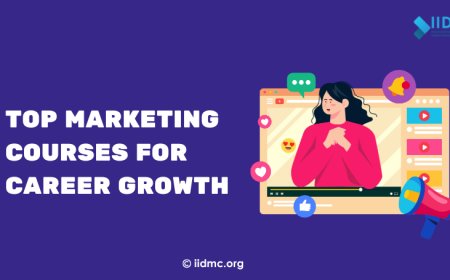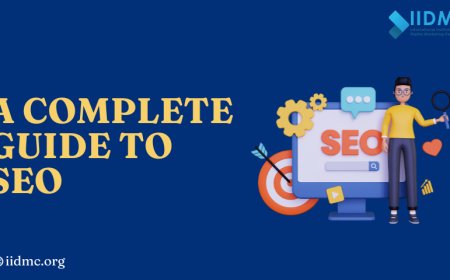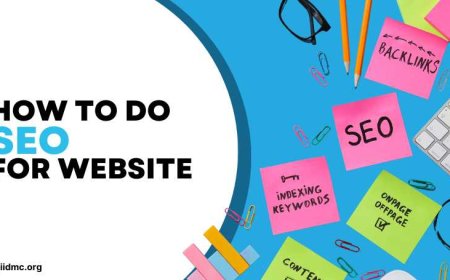Types of Digital Marketing Strategies
Explore key digital marketing strategies like SEO, social media, email, and more. Learn the skills that help businesses grow online effectively.
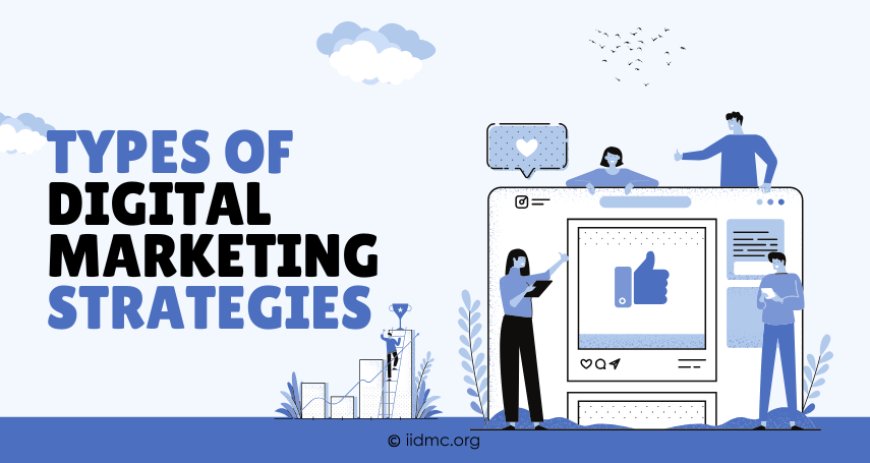
Want to Grow Your Business? A Digital Marketing Certification Can Help!
Having the right marketing skills can make a big difference in your business success. Whether you're a business owner, freelancer, or just starting your career, digital marketing gives you the tools to reach more customers online, increase sales, and stay ahead of your competition.
One of the best ways to gain these skills is through a Digital Marketing Certification. It helps you not only understand how online marketing works but also gives you hands-on experience from running ads and improving website visibility to building a powerful social media presence.
What Are Digital Marketing Strategies?
A digital marketing strategy is a plan that outlines how your business will use digital channels to reach its target audience and achieve specific goals. It includes methods like search engine optimization (SEO), content marketing, social media, email marketing, paid ads, and more.
The main objectives of any digital marketing strategy are:
-
To increase brand awareness
-
Generate leads
-
Convert leads into paying customers
It’s not just about being online, it's about using the right message on the right platform at the right time to connect with your audience.
Top Digital Marketing Strategies You’ll Learn
Here are the most essential strategies covered in digital marketing certifications and how they work:
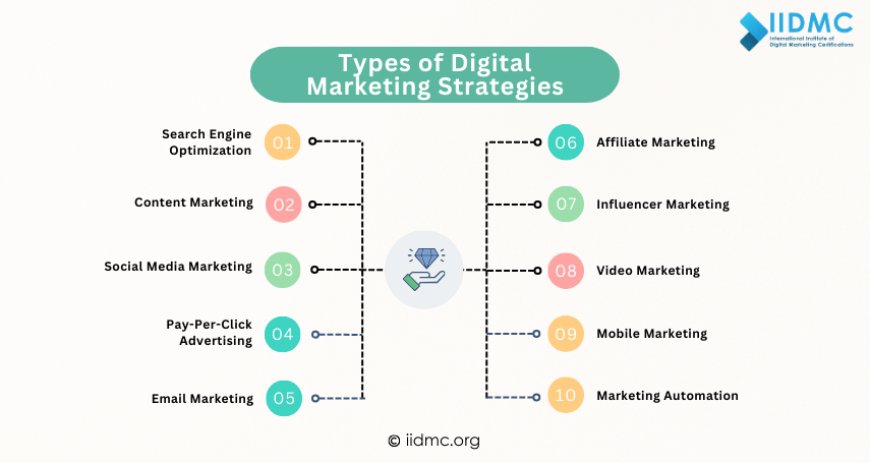
1. Search Engine Optimization (SEO)
SEO is about optimizing your website so it ranks higher on Google and other search engines. A strong SEO strategy brings in organic (free) traffic and improves your brand’s visibility.
Key elements include:
-
Keyword research
-
On-page optimization (titles, content, meta tags)
-
Off-page optimization (backlinks)
-
Technical SEO (site speed, mobile-friendly design)
Content marketing focuses on creating and sharing valuable content to attract and retain customers.
Types of content include:
-
Blog posts
-
Infographics
-
E-books
-
Webinars
-
Videos
-
Case studies
When done right, content positions your brand as a trusted authority in your field.
This strategy involves using platforms like Facebook, Instagram, LinkedIn, TikTok, and X (Twitter) to engage with your audience and promote your products or services.
Benefits include:
-
Boosting brand awareness
-
Driving website traffic
-
Building customer relationships
-
Running targeted ad campaigns
A strong social media strategy combines engaging content, community management, and both paid and organic tactics.
4. Pay-Per-Click Advertising (PPC)
PPC is a paid ad model where you pay only when someone clicks your ad. Platforms like Google Ads, Facebook Ads, and LinkedIn Ads are commonly used.
Advantages:
-
Quick visibility
-
Precise targeting
-
Flexible budgets
-
Measurable results
However, PPC campaigns require careful planning and regular optimization to get the best return.
Email marketing remains one of the most effective digital strategies. It involves sending personalized emails to your subscribers to build trust and drive action.
Common campaigns include:
-
Welcome emails
-
Newsletters
-
Promotions
-
Product updates
-
Event invitations
Success comes from using segmentation, automation, and A/B testing to improve engagement.
6. Affiliate Marketing
This strategy involves partnering with affiliates who promote your products or services in exchange for a commission on sales or leads they generate.
Benefits:
-
Expands your reach
-
Performance-based (pay only for results)
-
Cost-effective when done right
Choose affiliates who align well with your target audience for better results.
7. Influencer Marketing
Influencer marketing involves collaborating with individuals who have large or loyal online followings. These influencers can help promote your brand to a new audience with trust and credibility.
Tip: Choose influencers whose values align with your brand, and track metrics like reach, engagement, and ROI.
8. Video Marketing
Videos are one of the most powerful content formats to engage and educate your audience. You can share them on your website, YouTube, social media, or even in emails.
Popular formats:
-
Explainer videos
-
Product demos
-
Tutorials
-
Behind-the-scenes clips
-
Customer testimonials
Video content boosts engagement, helps explain complex topics, and improves conversion rates.
9. Mobile Marketing
Mobile marketing focuses on reaching users through smartphones and tablets. As mobile usage continues to rise, this strategy is more important than ever.
Methods include:
-
Mobile-friendly websites
-
SMS marketing
-
App-based marketing
-
Location-based offers
-
QR code campaigns
10. Marketing Automation
This involves using software to automate repetitive marketing tasks like emails, social posts, lead nurturing, and reporting.
Benefits:
-
Saves time
-
Personalizes campaigns at scale
-
Improves lead management
-
Enhances campaign performance
Popular tools: HubSpot, Mailchimp, Marketo, and ActiveCampaign.
Why Are Digital Marketing Strategies Important?
Digital marketing strategies help businesses:
-
Reach a global audience
-
Track and analyze performance in real time
-
Maximize ROI on marketing spend
-
Engage with customers more effectively
-
Build long-term brand loyalty
Without a clear strategy, businesses risk wasting money, missing opportunities, and failing to connect with their audience. A well-planned digital strategy ensures every move supports your broader business goals.
Why Get Certified in Digital Marketing?
-
Learn the most in-demand marketing skills.
-
Confidently plan and run your own campaigns.
-
Gain an edge in the job or freelance market.
-
Earn a respected certificate to prove your skills.
-
Increase your business visibility and revenue.
Take the First Step Toward Business Growth
A Digital Marketing Certification isn’t just another course; it’s an investment in your future. With the right skills, you’ll be able to grow your business, reach more customers, and make smart marketing decisions that bring real results.
Ready to stand out online and take your business to the next level? Start your digital marketing journey today!
How to Choose the Right Digital Marketing Strategy
The best strategy depends on your business goals, industry, audience, and budget. Here's how to decide:
-
Define your goals: Are you looking to build brand awareness, generate leads, or boost sales?
-
Know your audience: Understand their demographics, habits, and preferences.
-
Analyze competitors: Learn what works for others in your niche.
-
Choose the right platforms: Focus on where your audience spends their time.
-
Set your budget: Allocate your resources wisely.
-
Track & improve: Monitor key metrics and adjust as needed.
By understanding the different types of digital marketing strategies and how to apply them, you’ll be able to build a complete, effective marketing plan that delivers long-term success.



























